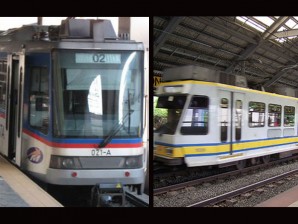Palace taps House allies to show provinces back MRT, LRT fare hikes
MANILA, Philippines – Not everyone has opposed the increase in Light Rail Transit (LRT) and Metro Rail Transit (MRT) fares, Malacañang said on Sunday.
Amid backlash from angry train commuters, the Palace banked on expressions of support from its congressional allies representing districts outside of Metro Manila where the LRT and MRT systems operate.
Communications Secretary Herminio Coloma Jr. rattled off the names of such supporters, noting that they were “elected directly by our people.”
“That’s why we also have to recognize that there are also a lot of groups and sections of our population who agree to the increase in LRT and MRT fares,” he said over Radyo ng Bayan.
Coloma cited Representatives Ben Evardone (Eastern Samar), Rufus Rodriguez (Cagayan de Oro City), Oscar Rodriguez (Pampanga), Rodolfo Fariñas (Ilocos Norte), Eric Singson (Ilocos Sur), Cesar Sarmiento (Catanduanes), and Joaquin Chipeco (Laguna).
Article continues after this advertisementMalacañang earlier noted that it was unfair for taxpayers outside of Metro Manila to shoulder a portion of LRT and MRT fares even if they were not taking the trains. With the new round of increases, the government was hoping to reduce its subsidy from P12 billion to P10 billion.
Article continues after this advertisementNot buying the argument, groups such as the Bagong Alyansang Makabayan are set to question the increase before the Supreme Court on Monday (Jan. 5), a move Coloma said the Palace would respect.
But Coloma appealed to these groups to keep protests orderly and not to disrupt traffic.
“Our police will maintain maximum tolerance as part of their adherence to the rules of conduct and in recognition of the right to hold legitimate protests,” he said.
Coloma said the fare increases were consistent with the Philippine Development Plan, the administration’s governance road map, which has been promoting “user pay.”
This would mean that LRT and MRT commuters would pay for the bigger portion of the fare because they have been the ones “directly benefiting” from these train systems, he said.
“The adjustments simply put to order fare collection and the resources used to continue improving the service,” he said.
